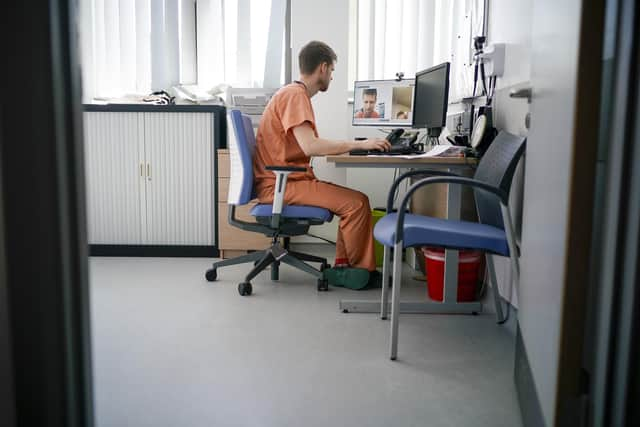GP waiting times: Derbyshire second worst in country as thousands wait more than four weeks for appointments
and live on Freeview channel 276
More than three-quarters of a million people in England waited more than four weeks to see a GP after making an appointment in December last year.
There were 25,077,056 GP appointments in England in December 2021, with 784,541 of these (3.1 per cent) taking place more than four weeks after the appointment was made.
Advertisement
Hide AdAdvertisement
Hide AdIn Derby and Derbyshire Clinical Commissioning Group (CCG), out of 496,320 appointments in December 2021, 27,235 took place more than 28 days after the booking was made, which is a proportion of 5.5 per cent.


Only Sheffield, at 6.7 per cent or 18,215 appointments booked, had a higher proportion of people waiting this long.
A Joined Up Care Derbyshire spokesperson said practices provided more appointments in December 2021 than in the same month a year ago.
"GP practices across Derby and Derbyshire work extremely hard to provide appropriate care, and this has continued during a period of high demand from patients,” the spokesperson added.
Advertisement
Hide AdAdvertisement
Hide Ad"Practices provided more appointments in December 2021 than in the same month a year ago, while in October and November provided more than 600,000 appointments each month.
"This is more than at any single month dating back to 2018, and reflects a collective determination in primary care to offer care to patients as effectively as possible.
"GPs prioritise appointments for patients who need care most urgently, and this includes symptoms which could indicate serious conditions such as cancer, diabetes or heart disease.
"Some routine care can be booked in advance with doctors, or with GP practice staff such as first contact physiotherapists, practice nurses and dietitians.
Advertisement
Hide AdAdvertisement
Hide Ad"These highly skilled professionals provide important care that may be less urgent but remains important to patients, and can include treatment or management of long-term conditions.
"GP practice staff work incredibly hard to ensure patients can access care as quickly as possible and we applaud their success in providing more appointments, embracing technology to provide virtual consultations where appropriate and providing a pathway for routine care which may mean slightly longer waits."
Journalists from Derbyshire Times’ parent company JPI Media’s specialist data team researched these figures.